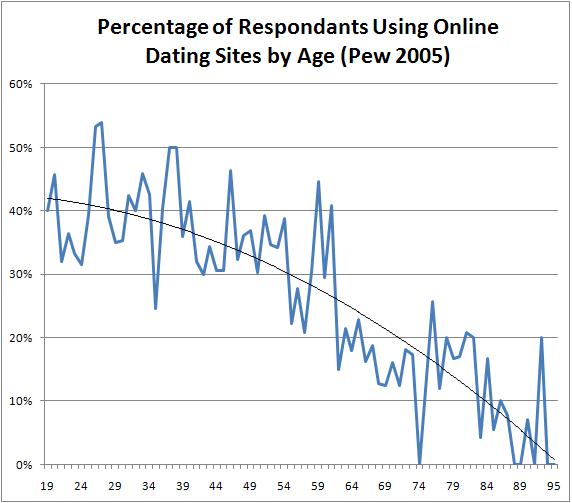 Cyborgology editors Nathan Jurgenson and PJ Rey discuss their take on “cyberbullying,” the recent rash of teen suicides, and the Internet’s role in providing social support to alienated teens. The complete interview is now streaming.
Cyborgology editors Nathan Jurgenson and PJ Rey discuss their take on “cyberbullying,” the recent rash of teen suicides, and the Internet’s role in providing social support to alienated teens. The complete interview is now streaming.
check out this great comic about sexism on the web and the issues with calling it out [via Feminist Philosophers]
 The self is a tricky thing to accomplish. Who we are is signified by a seemingly infinite number of factors: our physical appearance, the groups we belong to, the events we attend, the things that we say, how we say the things that we say, the friends that we keep, the work that we do, the way that we spend our leisure time, the amount of leisure time we allow ourselves etc. Each of these factors reflects the decisions that social actors have to make about who they are, and about the lines of action they will take in order to be defined in a particular way. In short, social actors are required to engage in significant amounts of “identity work”.
The self is a tricky thing to accomplish. Who we are is signified by a seemingly infinite number of factors: our physical appearance, the groups we belong to, the events we attend, the things that we say, how we say the things that we say, the friends that we keep, the work that we do, the way that we spend our leisure time, the amount of leisure time we allow ourselves etc. Each of these factors reflects the decisions that social actors have to make about who they are, and about the lines of action they will take in order to be defined in a particular way. In short, social actors are required to engage in significant amounts of “identity work”.
This work, however, must remain hidden. The “catch” in constructing a self that will be accepted by others, is that the self must come across as authentic. The self must appear to be spontaneous, uncalculated, and effortless. Said differently, identity work must remain invisible, it must be strictly relegated to the backstage (Goffman 1959).
 A colleague, Zeynep Tufekci, and I were having a friendly debate about whether college students are using sites focused specifically on online dating or whether they are using Facebook and other more general social networking sites in lieu of online dating sites. I compiled some data from the Pew 2005 online dating survey. As you can see, online dating sites were most popular among young adults. I’ll try to compile the same chart for 2010 next week.
A colleague, Zeynep Tufekci, and I were having a friendly debate about whether college students are using sites focused specifically on online dating or whether they are using Facebook and other more general social networking sites in lieu of online dating sites. I compiled some data from the Pew 2005 online dating survey. As you can see, online dating sites were most popular among young adults. I’ll try to compile the same chart for 2010 next week.
In the meantime, I’d be interested in hearing your thoughts. Are college students using online dating more than they were five years ago? Are they using other sites in lieu of online dating sites? more...
The term “cyberbullying” is frequently used to describe hurtful behaviors occurring via communication technologies. But why distinguish “cyber” bullying from other forms of bullying? Perhaps it is partly because, when thinking of bullying, we tend to envision physical violence, something impossible to accomplish over the Web. Perhaps it is because the Web allows for new and vastly different forms of communication, necessitating new terminologies. Indeed, social media, mobile phones, and other recent technologies have created new ways for bullying to occur. For instance, the anonymity one has on Formspring has certainly contributed to a groundswell of hurtful behaviors on that site. Moreover, bullying can now occur at virtually any time and in any place (with Internet access).
However, as danah boyd has previously pointed out, the term “cyberbullying” is quite loaded because it tends to be used in a way that seems to diminish the significance of an act of bullying. Yet, bullying is bullying, whether it occurs in a school, park, bus, or on the Web. (A rough definition of bullying for our purposes here: the repeated use of hurtful behaviors, such as, but not limited to, insults, rumors, threats, intimidation, coercion, exclusion, physical violence, or vandalism.)
The cyborg is a technologically-enhanced human. While we recognize and even play off of the campy sci-fi/cyberpunk vision of a half-robot that is conjured up by the term “cyborg,” our vision of the cyborg—our topic of study for this new blog—is at once more sophisticated and more mundane. We believe that the cyborg concept is epitomized by the ordinary person living in the 21st Century, whose everyday activities are seldom, if ever, independent of technology, whether they be for communication (e.g., cell phones and other electronic communication devices), bodily enhancement (e.g., medicine and specialized articles of clothing), or self-presentation (e.g., fashion or the social media profile).
 Our fundamental thesis is that technology (exemplified by social media) alters who we are, how we interact, even how we define reality. And, in turn, we continuously alter and define these technologies. All of reality, including ourselves, has been augmented by technology of some sort, and all technology has been augmented by our sociality. As such, we are all cyborgs. And the study of this blurring of technology and social reality is cyborgology.
Our fundamental thesis is that technology (exemplified by social media) alters who we are, how we interact, even how we define reality. And, in turn, we continuously alter and define these technologies. All of reality, including ourselves, has been augmented by technology of some sort, and all technology has been augmented by our sociality. As such, we are all cyborgs. And the study of this blurring of technology and social reality is cyborgology.
Facebook has become the homepage of today’s cyborg. For its many users, the Facebook profile becomes intimately entangled with existence itself. We document our thoughts and opinions in status updates and our bodies in photographs. Our likes, dislikes, friends, and activities come to form a granular picture—an image never wholly complete or accurate—but always an artifact that wraps the message of who we are up with the technological medium of the digital profile. more...

